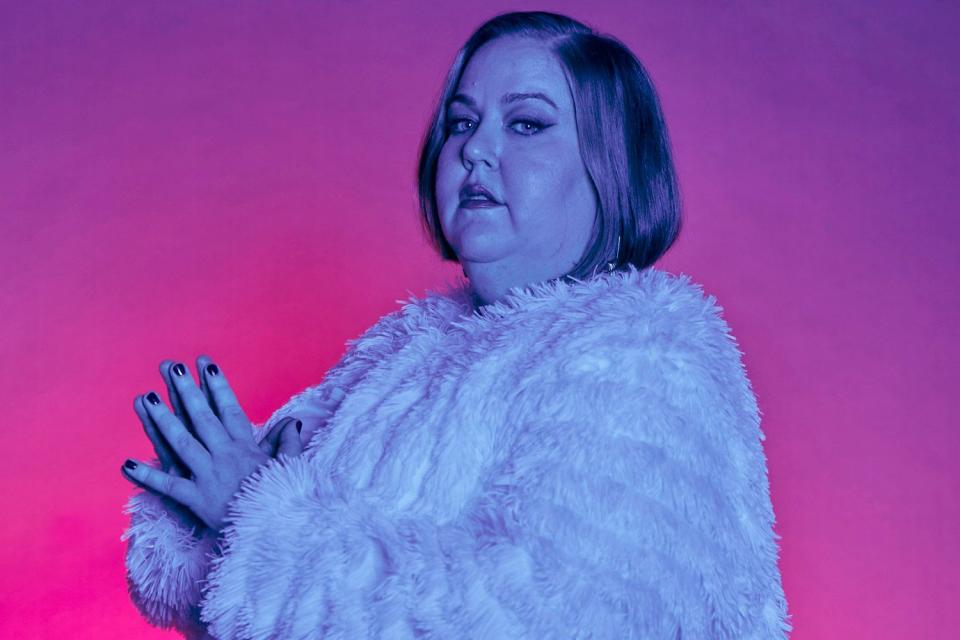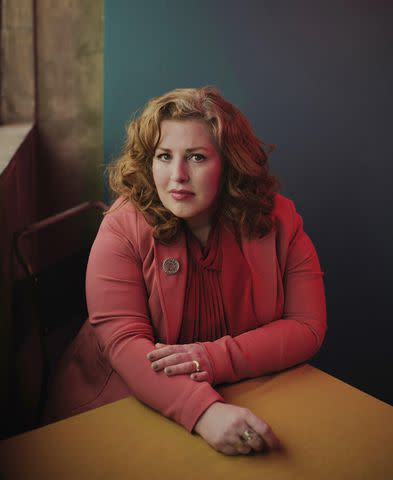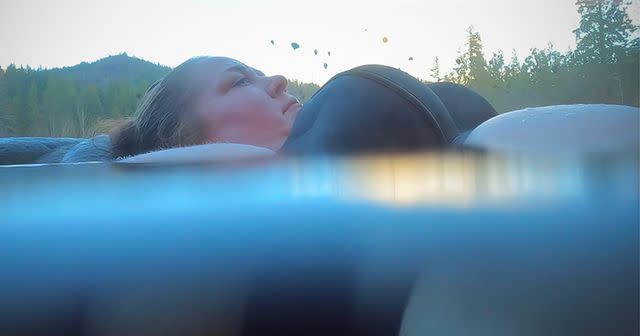Aubrey Gordon on New Film 'Your Fat Friend': 'My Hope Is to Get People Curious About What Fat Folks Experience'
Aubrey Gordon is an author, podcast host and star of a new film by filmmaker Jeanie Finlay at the Tribeca Film Festival

Photo by Joseph Cultice
Aubrey Gordon in the documentary YOUR FAT FRIENDAubrey Gordon first entered the cultural conversation about fatness with an anonymous and now-famous social media account @yrfatfriend. Her writing provoked a sweeping discussion, and she has since written two books, has a popular podcast Maintenance Phase and a new film Your Fat Friend debuting at the Tribeca Film Festival on June 8.
Gordon and the filmmaker, Jeanie Finlay , sat down with PEOPLE to discuss the documentary's backstory, cultural context and why we should all start saying "fat."
PEOPLE: How did you two come together to make this film?
Jeanie Finlay: I wanted to make a film about fatness because I was seeing the word fat a lot, and I was thinking, 'this is interesting ... this is a word that I've heard all of my life, and people are talking about it in a different way.' So I started making a film about fatness, and then as part of the research, I read the first piece that Aubrey wrote, and I read it and it felt immediate and emotional.
Aubrey Gordon: It felt like there was so much humanity and complexity and depth in [Finlay's] work that it felt like a safer place to do something that felt fully, deeply out of my comfort zone. We filmed over the course of six years. You just film hours and hours and hours of stuff and sort of turn yourself over to Jeanie and to a team of people.
I think what we ended up with, what the final cut ended up being feels like a really hard and honest portrait of me and my family.
PEOPLE: Has your family seen it?
Aubrey Gordon: Yeah, they have. My mom and dad both really liked it. Really, really liked it.
Jeanie Finlay: It was really important to me that they all watched the film and felt ownership of this project … and that everyone feels okay with it, because it's gonna get out in the world. So that's an important part of the process. It's a really important thing for me to do, to watch it with the family.
PEOPLE: Would you have made changes if they had requested that?
Jeanie Finlay: We would've had a discussion around it; it would be something that we do on all films, but we made zero changes to this film.
Aubrey Gordon: And I think we requested zero changes. I sort of felt like, well, if you're gonna be in on this process, you gotta be all in on this process and let the chips fall where they may.
PEOPLE: That’s a big jump from being anonymous. How did that evolution happen?
Aubrey Gordon: This [project] felt like the best possible circumstances. I thought, 'This feels like the right person. This feels like the right tone and tenor for the conversation.' So just like, if you're gonna do it, do it all the way ... I came to understand that as Jeanie said, anonymity, I had thought of it as sort of a cloak or a shield or something that could keep me safe. It did not. Like it categorically did not. And as Jeanie mentioned, it sort of becomes alluring and makes you a bigger target.

Phil Sharp
Jeanie FinlayPEOPLE: You were doxed and have gotten death threats. Do you continue to worry about your safety?
Aubrey Gordon: All the time.
PEOPLE: Are you concerned that when the film comes out it will be even more of an issue?
Aubrey Gordon: I'm a person who's appearing on camera, but this is true for pretty much any fat person on the internet talking about their fat politics. There are whole message boards and websites and all kinds of stuff dedicated to doxing and harassing and getting fat people fired.
As uncomfortable as that part of the movie makes me, it felt important to talk about that because it is happening with people with a much smaller following, with people with much fewer resources to combat this kind of stuff. And it stands in such sharp contrast to the number of, for example, thin people who will post about body positivity and show themselves eating a piece of pizza. And from a thin person, the post will get comments like, 'Yay, get it! Go. we love it.' And from a fat person it will be met with death threats, right? It's a night-and-day experience that I think hasn't really been lifted up in that way. And that feels like an important conversation to have about who's allowed to be body positive.

Photo courtesy of Glimmer Films
Aubrey Gordon in a scene from YOUR FAT FRIEND - directed by Jeanie FinlayPEOPLE: What impact are you hoping this film will make?
Jeanie Finlay: I would really like it if people started using 'fat' as a neutral descriptor instead of the worst insult. And I'd really like families to start having conversations ... if people started to pause before they passed comment on other people's bodies ... And I would encourage audiences to make time for messy stories, messy human stories that interrogate what it means to be alive.
Aubrey Gordon: In our conversations about fat people at a cultural level, we are constantly talking about fat people without ever really asking fat people what they need or hearing out their folk stories. And my hope through this, and frankly all of my work, is to get people actually curious about what fat folks experience.
My Fat Friend debuts at the Tribeca Film Festival on June 8.
For more People news, make sure to sign up for our newsletter!
Read the original article on People.

 Yahoo Sports
Yahoo Sports 